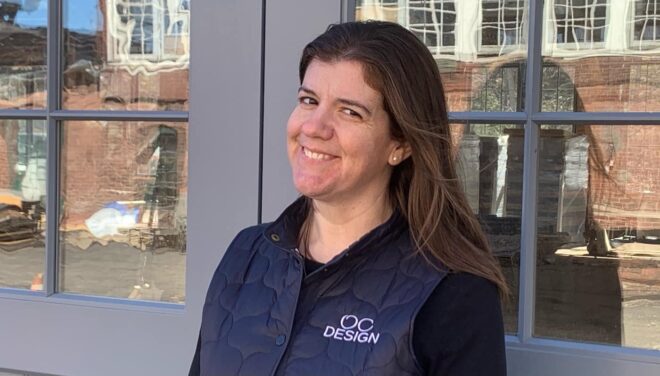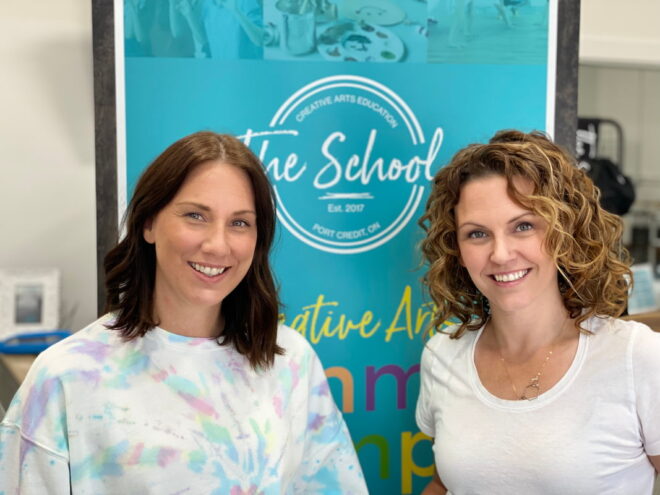Barocco X Nino
Editorial Team
8 min read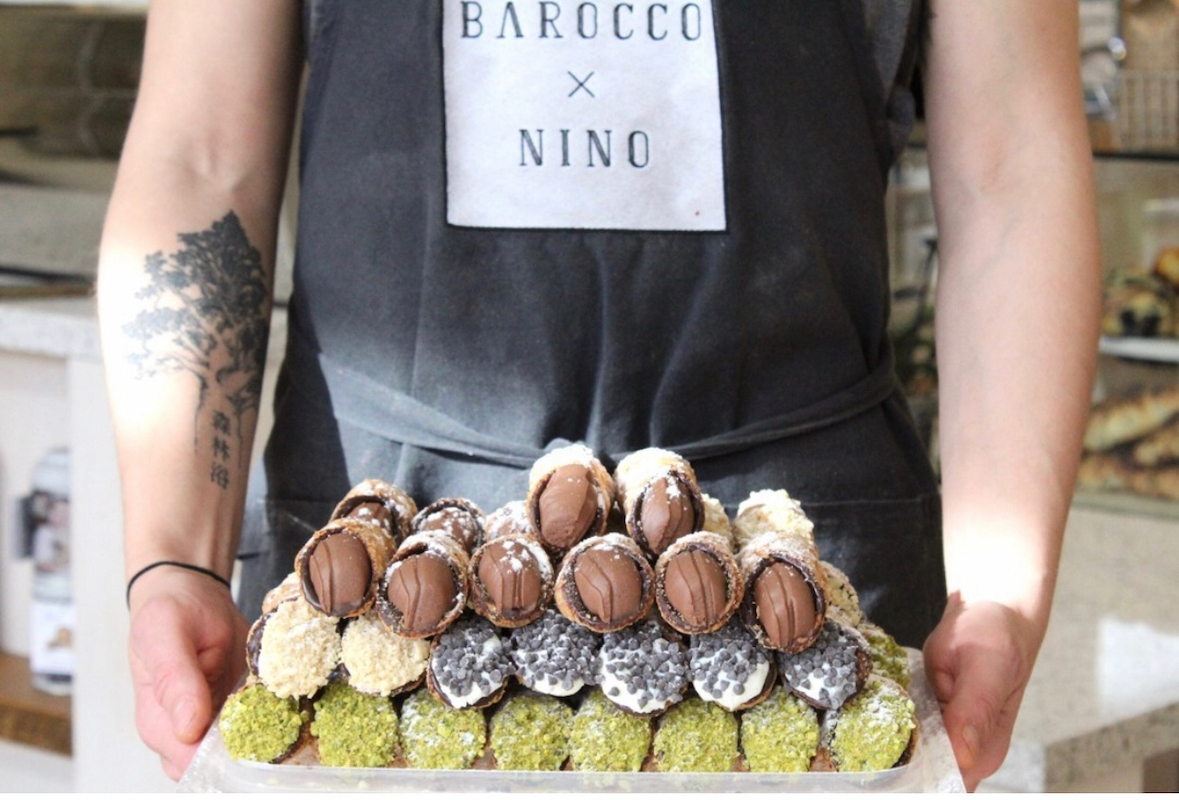
In this installment of Meet the Merchant, we speak to specialty coffee roaster Bruno Colozza, who opened Barocco X Nino, a gourmet cafe and eatery in downtown Toronto, Ontario in late 2019. Within months, the pandemic forced Bruno to shift his business model from cozy neighborhood hangout to contactless take-out innovator. Lockdown sales dwindled due to the lack of orders from regular wholesale customers like hotels, bars, and restaurants. Bruno and his team adopted an agile approach to keep customers coming back for more authentic Italian coffee drinks, pastries, and retail items, despite their brick and mortar’s physical limitations. Here’s how they did it.
Our Meet the Merchant series features Q&As with real-world Clover merchants. Read our full catalog for innovative ideas and real-life stories of small businesses in action.
Clover: So, your business name is pronounced Barocco by Nino?
Bruno Colozza: Yes.
Clover: Your cafe opened up in late 2019, not long before the pandemic. Walk us through the kind of work you did before. You have a background in coffee roasting, so how did you get the idea for Barocco X Nino?
Colozza: I started in coffee back in 2003 with two espresso bars. Specialty coffee was just getting started, and I wanted to create a traditional Italian cafe experience. We used Illy coffee, which is a famous roasting company in northern Italy. I did that for about eight, nine years. Then I learned more about roasting, which intrigued me.
In 2012, I joined Barocco Coffee, a roaster that had been in business for a couple of years. The CEO wanted to create his own coffee brand, and I took it from a private label, high-volume, low-margin roasting company to a specialty small-batch, artisanal style.
I put a lot of time into product development, hired some good people, and ended up buying into the company. My partner and I started looking for a brick and mortar in downtown Toronto. We wanted to expose our brand to regular customers and have a place to test new products and even do a little bit of roasting.
Clover: Were you concerned about the cost of opening a small business in the city?
Colozza: Rents were high. So we joined forces with Michael of Nino D’Aversa Bakery, which has been around for 50 years. He brought in high-quality pastries and pizza dough, and that’s how we created Barocco X Nino on College Street. We’re almost like a tiny food hall, a miniature Eataly where we have a fantastic coffee bar; we have gelato, a bread bar, and a full kitchen for prepared foods and pizza a taglio [by the slice].
It’s a fantastic experience. In back, we have a small coffee roaster where we do Sunday roasting sessions and train Barocco coffee wholesale customers from bars, restaurants, and hotels. Many of our customers are within the Toronto core. We opened in October 2019, and five months later, we had the pandemic. So it’s a different story from that point on.
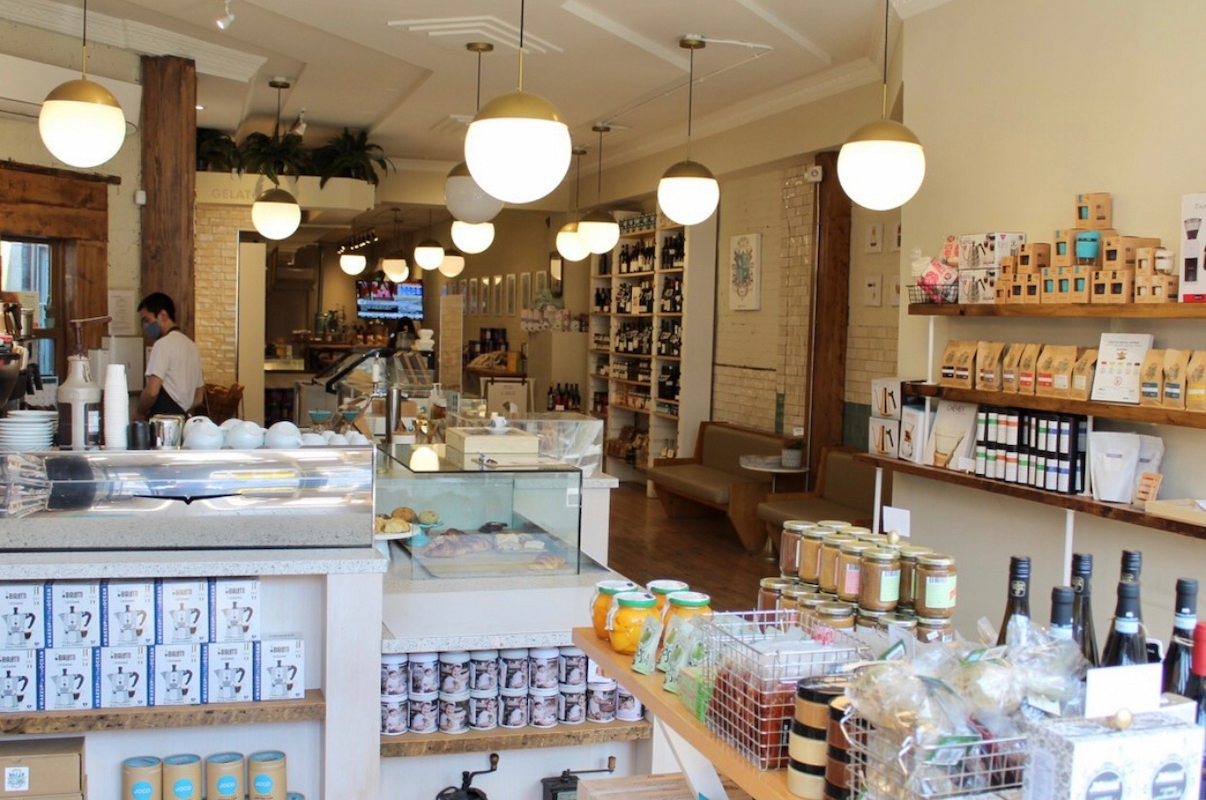
Clover: What were your strategies for choosing the location and menu items?
Colozza: We had that aha! moment, where you know this location is the one. It was gutted with a defunct art gallery/cafe in the front. The footprint was good, and the architectural details inside were what we were looking for, something with age and character.
Because we are in the city and have access to so many great products, we decided to branch out and bring in vendors like Baker and Scone, Tory Sweets for gluten-free [goods], and UB Social. The croissants are flash-frozen in Italy, and we bake fresh every morning. That’s how we built the offerings. There wasn’t a spot quite like it in the community.
Clover: How do people find you? Were they already familiar with the brand from buying it in other places, or are they new to you?
Colozza: I’d say more were new to the brand. Being in roasting for many years, I’d dealt mostly with wholesale customers. Those places served Barocco coffee in branded porcelain cups or had a sign in the window with our coat of arms. It’s nice to serve customers personally with our coffee.
Clover: I want to ask you a little bit about how you use Clover. I know you have a Clover Mini and you use Clover Virtual Terminal. How do you use both of them?
Colozza: We were using the Clover Flex here at Barocco Coffee, so I was familiar with it. Then we found out that the Mini was brand new and got a trial demo. I liked it. We ended up using the Mini at the bar. The Virtual Terminal is excellent from the standpoint of the back end, being able to go in, do menu items. We’ve had customers place orders ahead of time, like gift boxes or kits. It’s great to go in and take care of transactions through the Virtual Terminal [online] without having to go to an actual terminal onsite. Overall, we’ve been delighted with Clover.
Clover: Tell us about the apps you use for your business.
Colozza: We use Homebase for all of our scheduling. We like that it integrates with Clover. When I go in and check my labor costs, it’ll automatically show the sales figures. I like the fact that we use it as a company for employee scheduling, for communication through the messaging boards.
Clover: What kind of an impact does that have on you as a merchant?
Colozza: I think the significant value is the scheduling; it’s so user-friendly and easy to change schedules or give people different color codes. For instance, we have employees that are baristas. And one barista in particular also does training. So she’s a different color code. We schedule her for a training shift with a different color code which pops out easily.
Clover: How has the pandemic shifted things in the business? What have you learned, and how have you adapted over the last year?
Colozza: Well, it has been exhausting and challenging. Safety is the crucial thing. I think there’s a different appreciation on both sides from customers and staff. I feel that we run a lovely kind of environment for our team and that they, in turn, appreciate the effort. Our retention has been excellent.
We appreciate customers even more now because you can’t take them for granted when you’re hit with a crisis like COVID. Overall, there’s been a kinder, more positive attitude. You’re less irritated by the grumpy customer, and there are fewer grumpy customers.
We don’t have a huge seating capacity, like maybe 20, 30 people, grab-and-go style. The pandemic didn’t hurt us too much in that regard. Having fewer people out on the streets and less foot traffic, that was the big problem. We converted some of the seating areas into shelves of gourmet items that you couldn’t find at every grocery store. Then, we applied for a liquor license. It took forever to get it — basically, the entire length of the pandemic. Now we have a bottle shop, and it’s fun to sell wines and spirits.
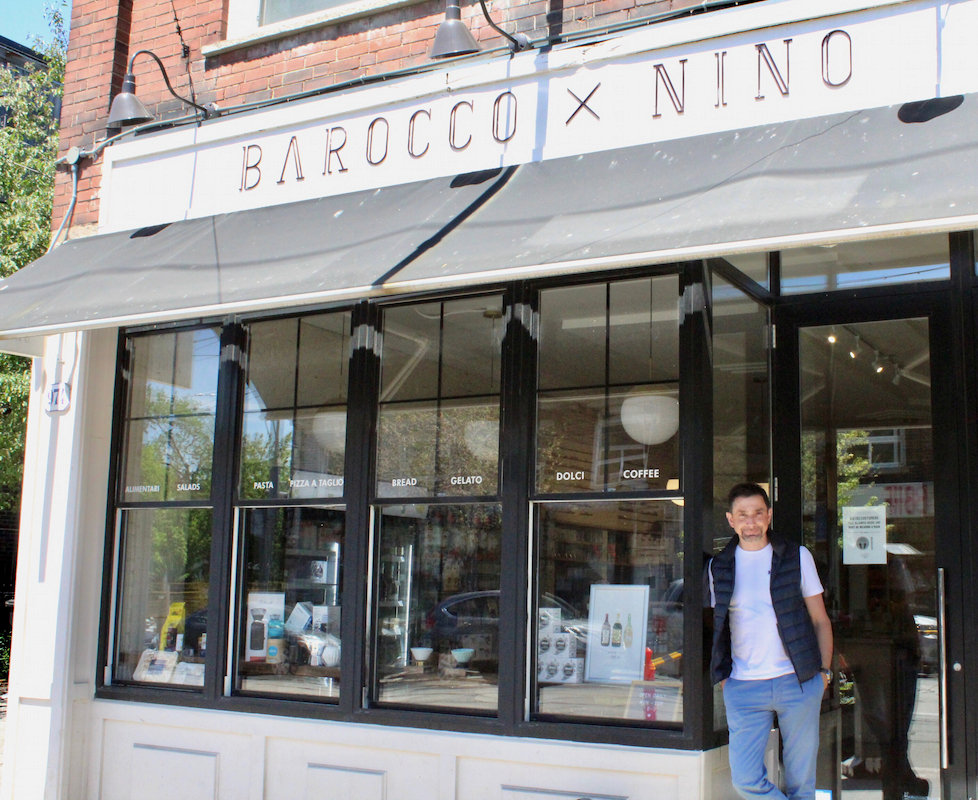
Clover: That’s exciting. So you’ve continued growing this year?
Colozza: When the pandemic hit, it went down just a touch, then it rebounded. Growth has been gradual. We have to do so much to get a little incremental sales, like adding inventory. We need now for the vaccinations to hit a certain percentage, so the infections come down. Then the restrictions will ease, and we’ll get more foot traffic, and sales will go up.
Clover: That makes sense. So, if someone says, “Hey, Bruno, I’m thinking about opening up a cafe,” what would you tell them? What have you learned that you’d want to pass on?
Colozza: Make sure you have reasonable rent and develop a solid relationship with the landlord. Once you sign a lease, whether it’s for two years, five years, or 10 years, the terms are ironclad. You can change a lot of things about your business, but you cannot change that lease. If it’s too high, you’ve dramatically reduced your chance of success.
Clover: What’s next for you?
Colozza: We want to continue to grow at Barocco X Nino. There may be new opportunities because a lot of our industry has disappeared. People will resume going out. I think there’s a lot of pent-up energy and desire to go out and eat and drink and socialize. I feel that we’ve created something exceptional and unique. We get a lot of positive feedback, so I don’t see why we can’t do more Barocco X Ninos.
Clover: More locations are in your future?
Colozza: It’s possible, yes. We still have a ways to go to reach the potential of the one that we have now.
Read more of our Meet the Merchant stories for real-life stories of small businesses in action all over the country. Want to be featured in this series? Fill out our questionnaire, and if we can include you in a future interview cycle, we’ll send you an invitation!
Related Posts
The School – Creative Arts Education
Popular Topics
Stay in touch
Sign up and learn more about Clover.
Thank you for your subscription!
More posts about starting a small business
eBook
